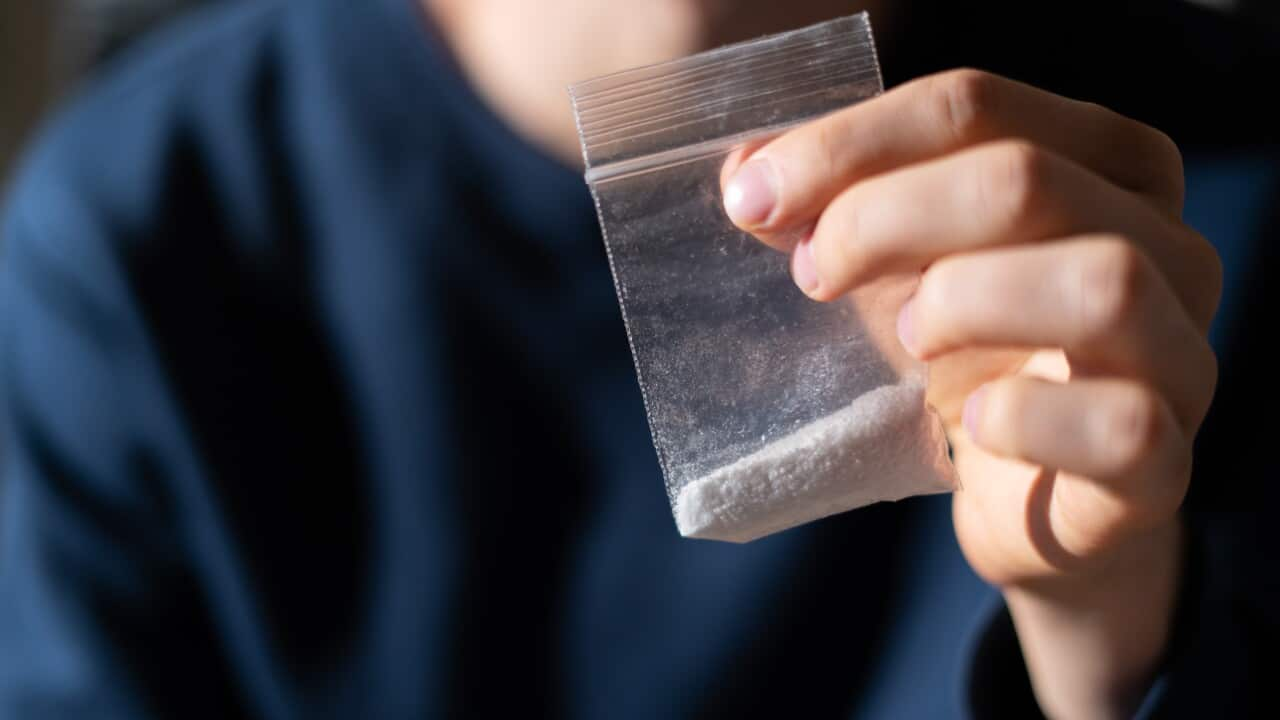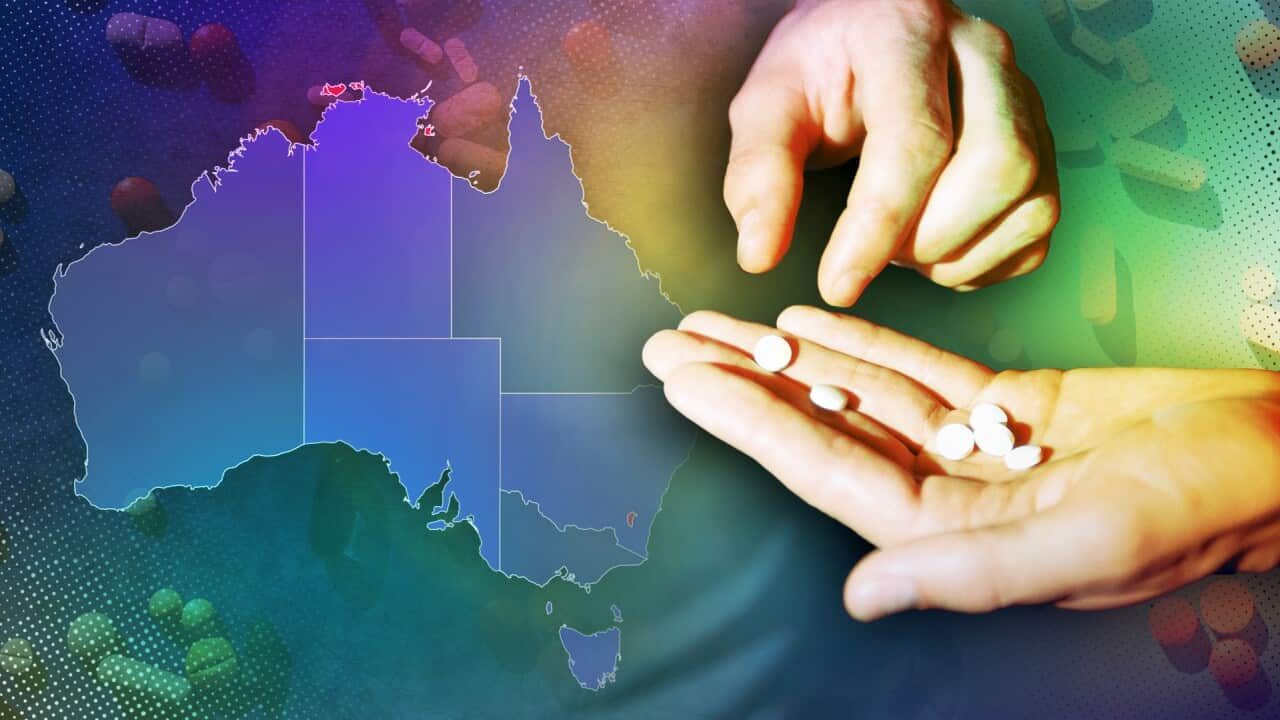Key Points
- A NSW Greens MP is pushing for a regulated legal cocaine industry, saying it would push gangs out of business.
- It comes after a spate of recent shootings in Sydney linked to the drug trade.
- Experts and advocates say there is no evidence decriminalisation leads to an increase in drug use.
Legalising cocaine could push organised drug gangs out of business, an MP has suggested, with experts and advocates calling for a fresh approach to drugs.
Police have linked a spate of recent shootings in Sydney to the drug trade, and the use of cocaine in society is not dropping.
According to the National Illicit Drug Reporting System, cocaine use and availability have remained steady in Australia in 2021 and 2022, with 15 per cent of respondents using the drug in the last six months.
Cate Faehrmann, a NSW Greens MP, said the "pointless" war on drugs was continuing and that the "only people benefiting from this stupid and dangerous mentality are criminals".
"The worst thing for the drug lords right now would be a legal market, that's what they would fear the most," Feahrmann told the ABC.
"Why is cocaine illegal and other drugs like alcohol are legal? We have far more deaths in this country from alcohol than we do cocaine."
Her calls, in the Sydney Morning Herald, for a "strictly regulated cocaine market" are unlikely to come to fruition, but NSW could follow other states with a decriminalisation model.
The Minns Government has committed to a drug summit in its first term, but details are yet to be revealed.
Last week, NSW Police announced a special task force of 100 extra officers has been formed to curb violence related to the drug trade.
Annie Madden is the executive director of Harm Reduction Australia, an advocacy organisation focused on reducing potential harms from both drug use and drug policies and laws.
She said an evidence-based, regulated approach would be a more effective system of managing drug use.
"Frankly, we do believe the current prohibitionist war on drugs approach has been an utter fail," she said.
"There are many highly regarded, highly credentialed bodies both internationally and nationally that are now speaking out about the failure of the war on drugs and supporting the need for drug law reform and policy reform."
What is drug decriminalisation?
Decriminalisation and legalisation are two different concepts.
Decriminalisation refers to removing penalties for possessing a small amount of a drug for personal use.
Legalisation - which Faehrmann has called for - refers to the removal of criminal penalties for supply and could enable sales and distribution.
A legal market would likely involve highly regulated sales and supply.
Under decriminalisation, civil or financial penalties may be introduced, or people may be referred to treatment or education programs or issued a caution.

NSW Greens MP Cate Faehrmann has called for a regulated legal cocaine market. Source: AAP / Bianca De Marchi
"There is no evidence that drug use increase when you remove the criminal penalties," she said."
Ritter says the main arguments supporting decriminalisation are based on the use of resources.
"Police are spending an inordinate amount of time arresting people for simple use possession, and that is a very expensive activity for society," she said.
"There is no evidence that being arrested for a substance decreases your likelihood of using the substance again, so it doesn't produce any effect other than being very costly, and the demand for drugs continues."
Madden agrees and said prohibitionist approaches to drugs are not effective means of reducing use or improving outcomes.
"There is absolutely zero evidence to suggest that will ever happen," she said.
"That is the reality that we need to deal with, and we believe regulation is the most sensible, pragmatic way to address these issues."
How common is cocaine in Australia?
According to the National Illicit Drug Reporting System, cocaine use and availability have remained steady in Australia in 2021 and 2022, with 15 per cent of respondents using the drug in the last six months.
A report published by the National Illicit Drug Indicators Project estimated there were 1,788 drug-related deaths in Australia in 2021, with 82 of those from cocaine.
Madden says while numbers fluctuate due to drug availability and reporting, drug use does not appear to have dropped despite policing.
"Both anecdotally and in the research we have, I'd say at the very least, it is not going down," she said.

Cocaine use has increased in Australia despite policing. Source: SBS News
She says the "black market" increases the profits being made from the substances as well as wider crime.
"If (drugs) are in a more regulated market then we don't see the same issues...it is a situation where the law doesn't apply ... it is a world of its own."
Madden acknowledges there are risks associated with drug use, but believes decriminalisation or regulated legalisation could minimise harmful outcomes.
"There is no perfect model that will have zero harm associated with it; there are risks associated with using drugs full stop, legal or illegal," she said.
"If we were to go down the road of some form of regulation, we believe that opens the door for better approaches that are focused on ensuring we minimise the harms as much as possible."











